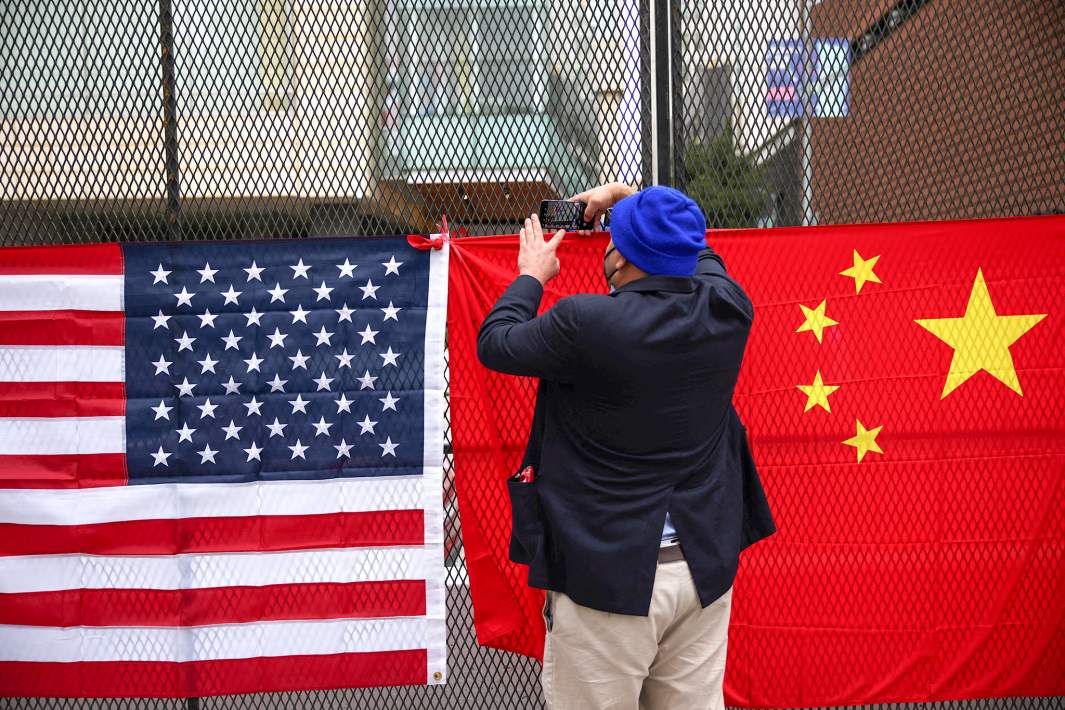
China in pole position in trade spat with USA
By Rhod Mackenzie
On Thursday, theUS Treasury Secretary Janet Yellen announced that the US-China economic and financial working groups will continue to hold regular meetings. Yellen also stated that she plans to visit China for the second time as Treasury Secretary.
During the US-China Business Council's 50th Anniversary Dinner in Washington, Yellen emphasized that the US aims to establish long-lasting communication channels with China, rather than seeking to decouple from the country. This is in contrast to recent developments in Congress. On Wednesday, several members of the US House of Representatives proposed four measures to ensure the complete implementation of the policy of 'decoupling' from China. 'The system must be reformed,' said Michael McCaul, the Chairman of the House Foreign Affairs Committee and a Texas Republican.
This proposal comes shortly after the House Select Committee on the Strategic Competition Between the US and the Chinese Communist Party called for a reset of economic ties between the US and China. Although not all of the approximately 150 recommendations will be enacted, they indicate that Washington's policy of 'decoupling' from China remains unchanged.
There is no apparent disagreement between the White House and Congress regarding China policy, as both aim to position China as a major competitor.
Yellen's remarks can be viewed as a 'political gesture,' indicating that there is still potential to rebuild communication channels between the two countries. Meanwhile, Congress is focused on enforcing the policy of containing China. This involves emphasising internal compliance regulations and exerting pressure on the White House.
It is important to acknowledge that US sanctions on China's high-tech sectors will become more targeted, focusing on specific firms and technology levels. While some Chinese companies may be removed from the blacklist, others could be added to different sanctions lists over time.
The proposal put forward by some US representatives on Wednesday highlights the need for systematic reforms within the US system to improve coordination and enforcement, and to sever economic and financial ties with China. The proposal recommends that the Bureau of Industry and Security (BIS) work in coordination with the Departments of Defense and Treasury to align their trade restriction lists. Additionally, if an entity is not sanctioned by one agency despite being on another's list, an explanation must be provided to Congress.
The BIS plays a critical role in advancing US national security, foreign policy, and economic objectives by ensuring effective export control and treaty compliance, as well as promoting US leadership in strategic technologies.
The US administrations, particularly the BIS, have been refining their export control. This will gradually ease the situation for some technology exports to China while imposing precise and stricter restrictions on high-end technologies and products. This refinement will likely have a more significant impact on the future relationship between the two countries.
Following the San Francisco summit, Washington's stance toward Beijing has improved. However, despite some progress in mutually beneficial areas, deep-rooted conflicts persist, leaving the outlook for the relationship between the US and China unclear. As the US approaches the election, Congress is set to reinforce its policy of containing China. It is expected that next year, there will be a continued push for 'decoupling,' which may lead to a stumbling communication process between the two governments. Congress will also put even more pressure on China's economic development.
However, there will still be heated debates over specific businesses and technologies involved in 'decoupling.' It is evident that as the negative impacts of 'decoupling' persist, Washington will gradually take action. Unfortunately, some politicians in Washington have not yet recognized this change.
It is anticipated that the US administrative system will gradually establish a framework for a new model of China-US relations by prioritising 'decoupling' from China as a key governance objective and implementing an operational mechanism within the compliance process.
Communication between the two sides is ongoing. Although a few discussions may not resolve disputes, the existence of communication suggests the potential for advocating for the concrete interests of both sides. The Chinese side still holds most of the bargaining power, and they are focused on enhancing it through coordination and resource integration to strive for fairer development rights and interests for Chinese companies.
